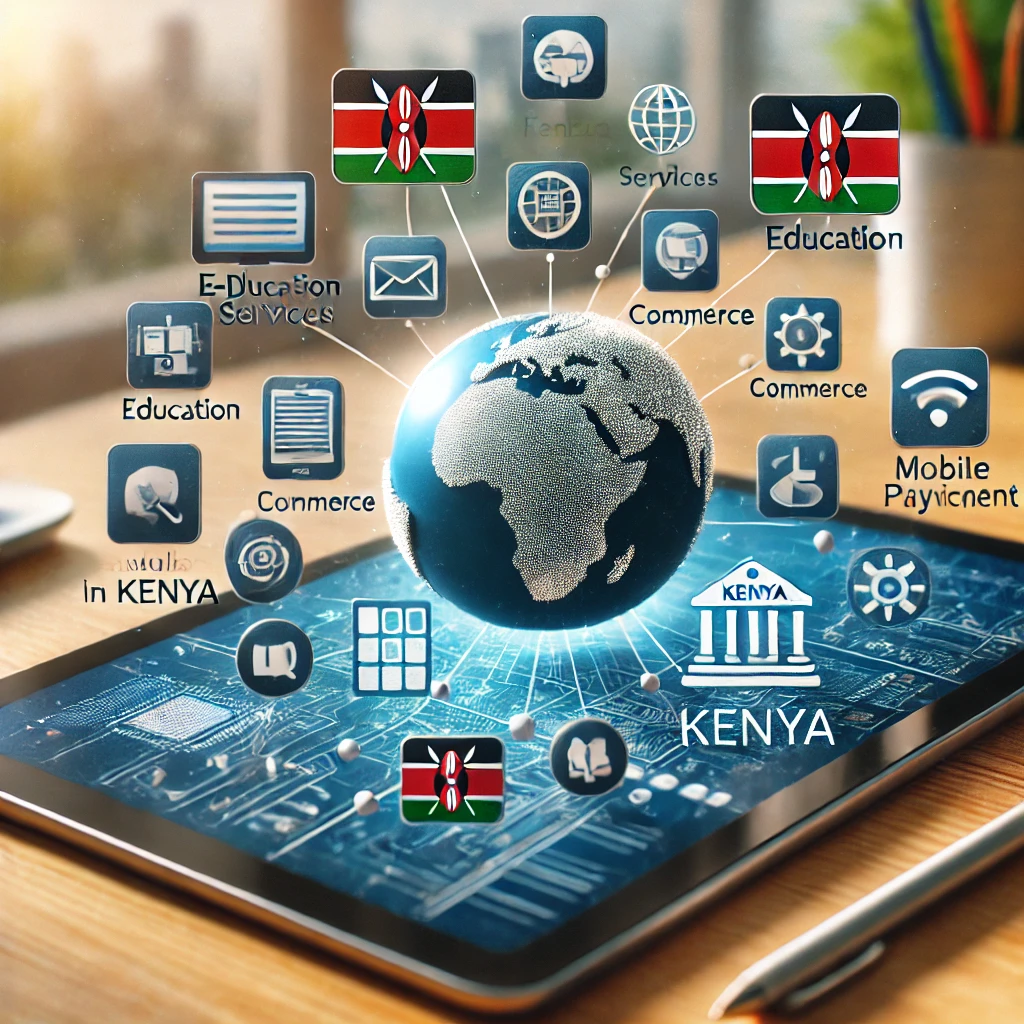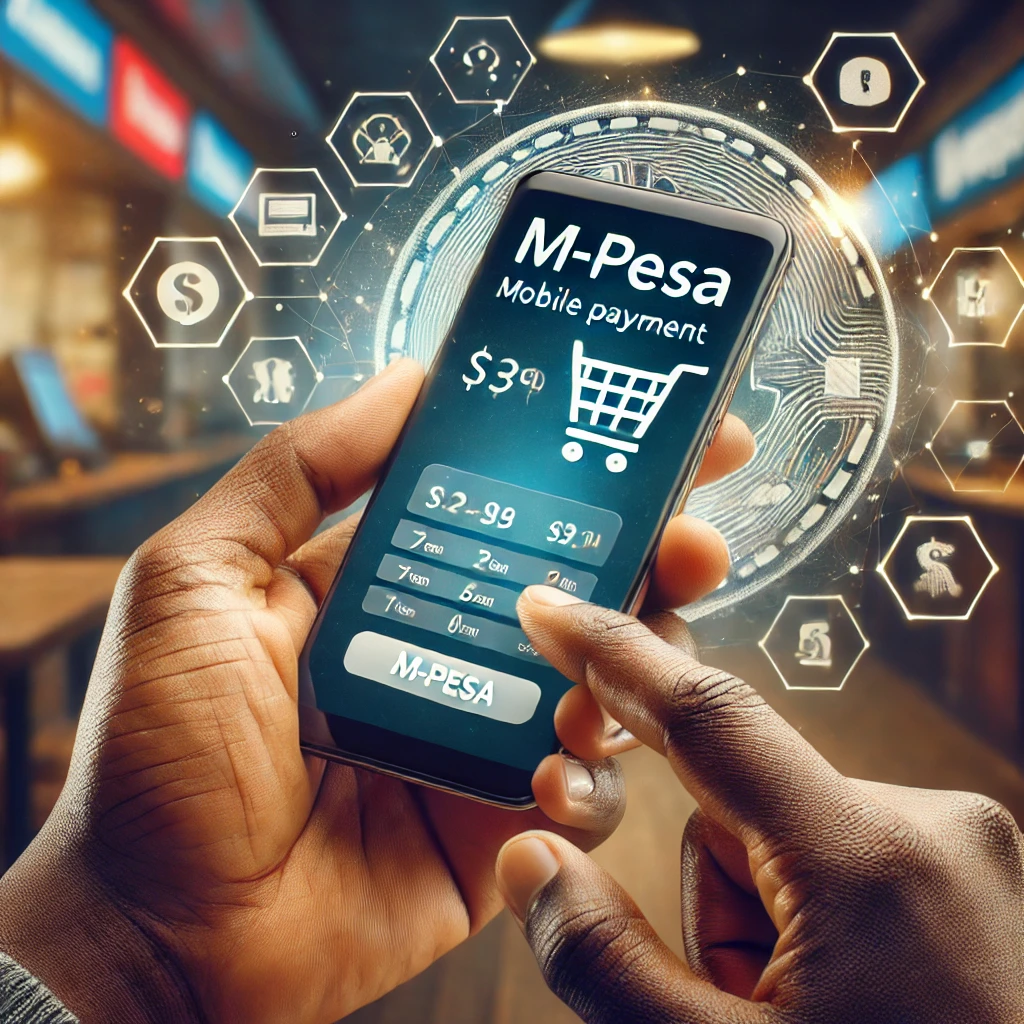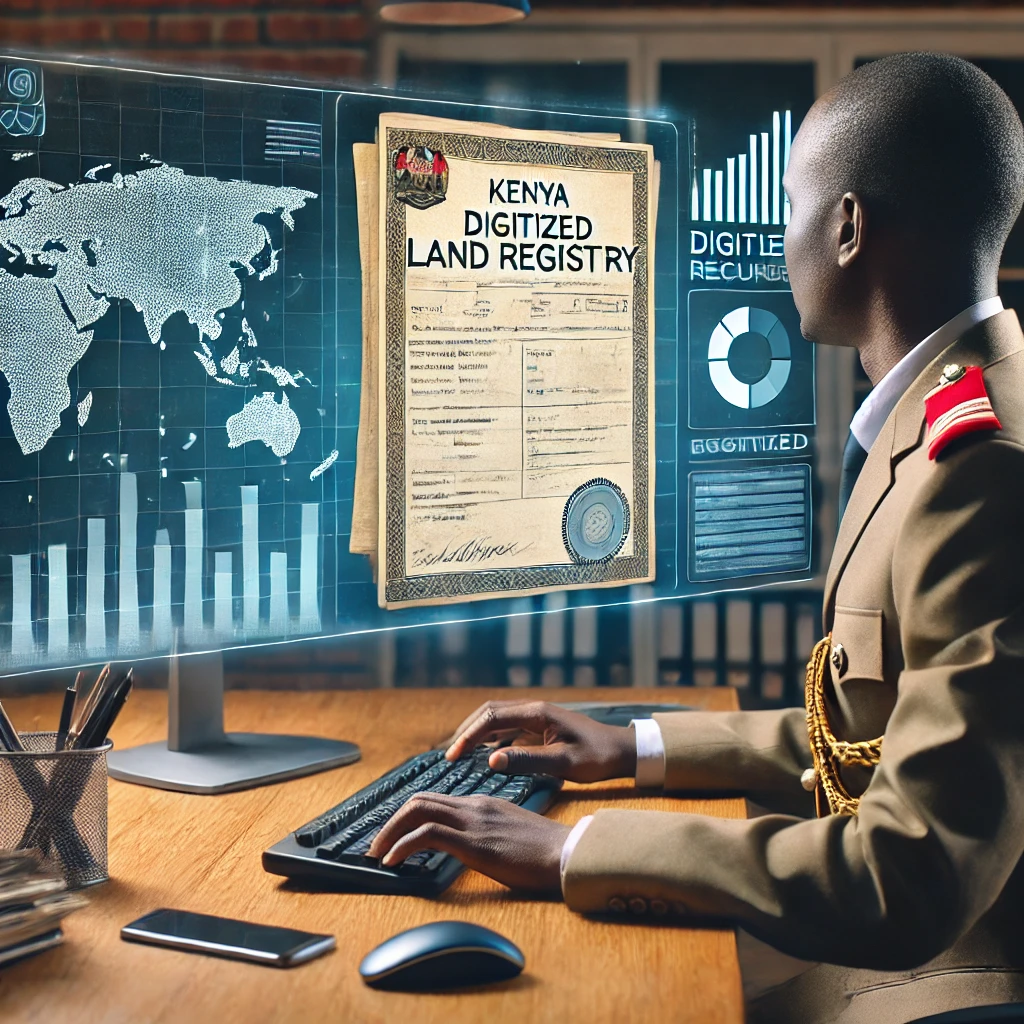

Digital Transformation in Kenya: How Tech is Shaping Kenyan Society
1. The Rise of Digital Education

Education in Kenya has greatly benefited from digital transformation, with technology providing new opportunities for students, teachers, and institutions:

- E-Learning Platforms: Platforms like M-Shule and Eneza Education offer digital learning resources accessible by mobile devices, enabling students in remote areas to learn at their own pace. These platforms provide lessons and quizzes aligned with the Kenyan curriculum, making education more accessible and personalized.
- Government Initiatives in Digital Education: The Kenyan government has implemented programs like the Digital Literacy Programme (DLP), aimed at integrating digital devices and resources into schools. The program aims to equip young Kenyans with digital skills essential for the modern workforce.
- Online Tutoring and Resources: The rise of online tutoring services and resources like Kytabu has made it easier for students to access supplementary education. Online resources also offer flexibility, allowing students to study on their own schedules, which is particularly valuable for adult learners.

Impact on Society
Digital education empowers students, improves digital literacy, and helps bridge educational gaps, especially in underserved regions. By enabling access to quality education, technology is playing a role in reducing inequalities and preparing a tech-savvy workforce.
2. E-Commerce: Transforming How Kenyans Shop and Trade

Digital transformation has reshaped commerce, with e-commerce platforms becoming increasingly popular among Kenyans:

- Rise of Online Marketplaces: Platforms like Jumia and Kilimall have brought a wide variety of products to the fingertips of consumers. From groceries to electronics, Kenyans can now shop conveniently from home, reducing the need for travel and expanding choices.
- Mobile Payment Solutions: Mobile money services such as M-Pesa have made online transactions easy and secure, with seamless integration on e-commerce platforms. M-Pesa’s impact is profound, enabling even small businesses and rural vendors to participate in the digital economy.
- Support for Small Businesses: Many e-commerce platforms offer local vendors the chance to reach a wider audience. Small businesses and artisans are now able to sell their products beyond local markets, enhancing economic opportunities and supporting livelihoods.

Impact on Society
E-commerce has transformed consumer behavior, making shopping more convenient and boosting economic participation for small businesses. By bridging the gap between urban and rural markets, digital commerce contributes to economic growth and inclusivity.
3. Digital Government: Bringing Services Closer to Kenyans

The Kenyan government has embraced digital transformation to improve public service delivery and promote transparency:
- eCitizen Portal: The eCitizen platform allows Kenyans to access government services online, from applying for IDs to paying for licenses and taxes. This has simplified service delivery, reduced long queues, and increased efficiency in government operations.
- Digitized Land Registry: In an effort to tackle corruption and land disputes, Kenya’s Ministry of Lands digitized land records. The digital land registry makes it easier to verify land ownership, reducing fraud and expediting transactions in real estate.
- Health and Social Services: Digital platforms have been introduced for registering births, accessing health records, and applying for social assistance programs. The integration of health services with digital platforms, such as the Ministry of Health’s digitized health portal, makes it easier for Kenyans to access essential health information and services.

Impact on Society

By digitizing government services, Kenya has increased accessibility and reduced corruption. Citizens can access services more efficiently, fostering a sense of trust in government and strengthening the relationship between government and citizens.
4. Digital Transformation in Agriculture: Revolutionizing Farming Practices

The agricultural sector, which supports millions of Kenyans, is also experiencing significant changes due to digital transformation:

- Agri-Tech Platforms: Platforms like Twiga Foods and FarmDrive use digital technology to connect farmers with markets, provide crop and weather information, and even facilitate access to credit. Farmers can make informed decisions, leading to improved yields and income.
- Mobile Advisory Services: Digital advisory services offer farmers real-time information on weather conditions, pest management, and crop pricing. These tools help smallholder farmers make better decisions, increasing productivity and reducing losses.
- Blockchain for Transparency: Blockchain technology is being tested in agriculture to track supply chains and enhance transparency. By providing a secure way to trace products from farm to market, blockchain helps build consumer trust and ensures product quality.
Impact on Society
Digital transformation in agriculture empowers farmers, improves food security, and promotes sustainable practices. By leveraging technology, Kenya’s agricultural sector is becoming more efficient, which benefits both producers and consumers.
5. The Role of Technology in Enhancing Healthcare

Technology is also transforming healthcare in Kenya, making it easier for people to access medical services and information:

- Telemedicine Services: Telemedicine platforms like MyDawa offer online consultations and prescriptions, making healthcare more accessible, especially in remote areas. Patients can receive medical advice without needing to travel, saving time and resources.
- Digital Health Records: The Ministry of Health is working on digitizing health records to streamline patient information management and enhance healthcare delivery. Digitized records reduce paperwork, prevent data loss, and make it easier for healthcare providers to access accurate patient information.
- Mobile Health Applications: Health apps provide resources for managing conditions, tracking medication, and even connecting with healthcare providers. Apps like M-TIBA facilitate payments for healthcare services, making it easier for Kenyans to access quality healthcare.
Impact on Society
Digital health services enhance access to care, improve health outcomes, and increase efficiency within the healthcare system. Technology’s role in healthcare is crucial in addressing the unique needs of rural and underserved populations.
6. Challenges and the Road Ahead for Kenya’s Digital Transformation

While Kenya has made remarkable strides in digital transformation, challenges remain:

- Digital Divide: Access to technology remains uneven, with rural areas and low-income households having limited access to the internet and digital devices. Bridging this gap is essential for inclusive digital transformation.
- Cybersecurity and Data Privacy: With increased reliance on digital platforms, cybersecurity threats and data privacy concerns are rising. Protecting users’ personal information and securing digital infrastructure are top priorities for sustainable digital progress.
- High Costs of Digital Infrastructure: The cost of maintaining and expanding digital infrastructure is high, which limits widespread access to technology. Investing in affordable, high-speed internet access is critical to ensuring that all Kenyans benefit from digital transformation.
- Digital Skills Development: To keep pace with technological advancements, Kenyans need access to digital skills training. This is particularly important for the youth, who will make up the bulk of the future workforce.

Conclusion

Digital transformation is reshaping Kenyan society, impacting education, commerce, government services, agriculture, and healthcare. While there are challenges, the benefits of technology are clear, bringing accessibility, economic growth, and convenience to millions. As Kenya continues on its digital journey, addressing issues such as the digital divide and cybersecurity will be crucial. Kenyan Chronicles will continue to monitor and report on Kenya’s digital evolution, providing insights into how technology is shaping the future of Kenya.
How has digital transformation impacted your life in Kenya? Share your experiences in the comments and follow Kenyan Chronicles for more updates on Kenya’s digital progress.








